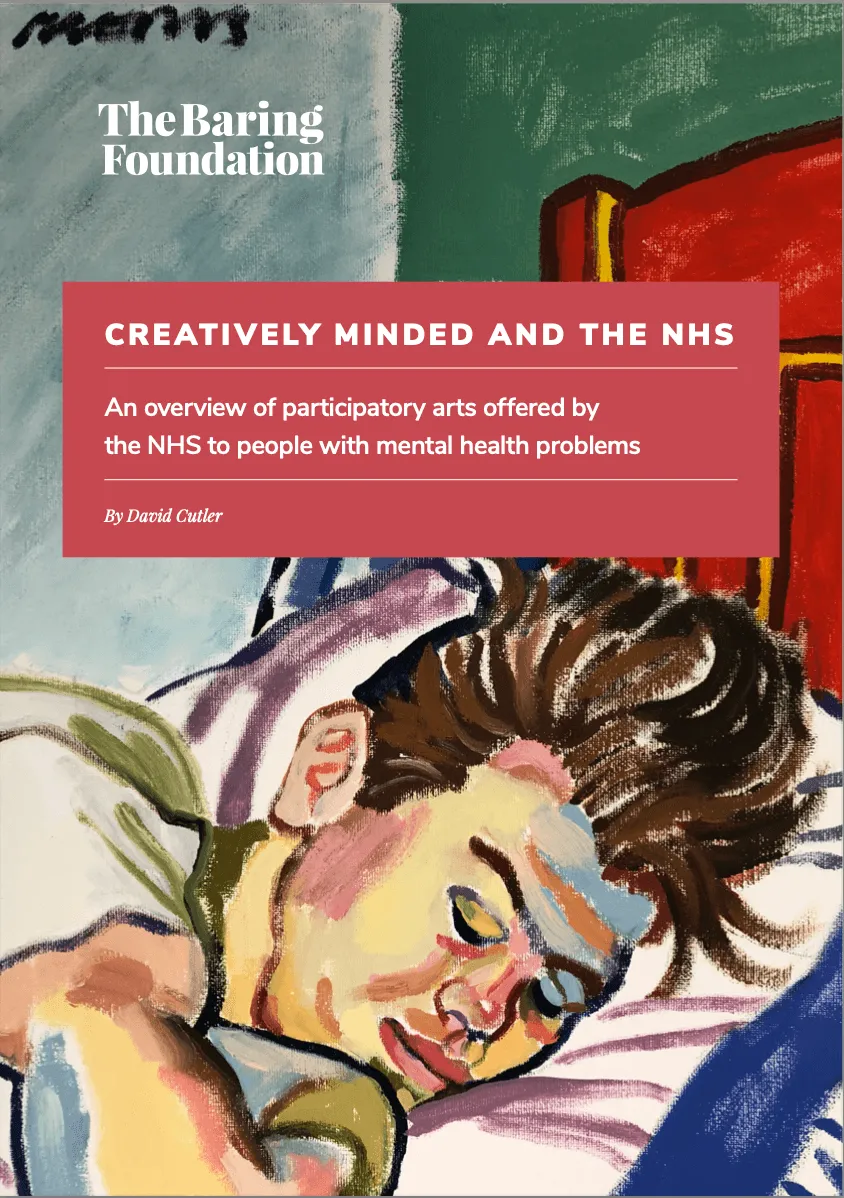
The Baring Foundation usually publishes reports based on the experience of participatory arts organisations. This report seeks to balance this by focusing on the role and experience of NHS organisations in creativity with and by people with mental health problems. It is published during the Covid-19 pandemic which has led to worsening levels of mental ill-health and therefore likely increasing demand for both medical and non-medical approaches.
The first section of the report attempts an almost impossible task: explaining the highly complex operation that is the NHS mental health system. Also considered here are the roles of social prescribing and Recovery Colleges, as well as why Creative Arts Therapies, though important, are outside the scope of this report.
At the heart of the report is a series of 15 case studies organised by nation and preceded by a brief account of some of the relevant policies. This recognises the highly devolved character of arts and mental health provision. Examples are given from primary and secondary care. Case studies set out the local context and responsibilities of NHS mental health services, challenges to working creatively and particularly significant projects.
The last section reflects on some of the key ingredients for work in this area accepting that this is by no means an in-depth examination of a complex area. Here are some observations:
– this work should be celebrated and more high profile;
– each nation operates differently but Wales has a highly strategic approach;
– the role of Arts Coordinators in the NHS is key, including in sourcing and making effective partnerships with arts organisations;
– these partnerships are based on national and local arts and mental health ecologies that should be nurtured;
– there is an ongoing need for translation between the worlds of the NHS and the arts, as well as relevant training for artists;
– NHS leaders have an important role and staff inclusion on projects has many benefits;
– there is a rich seam of work in improving the environments of health settings using the arts both indoors and out;
– creative activity is evolving to include more digital offers;
– sustainable funding may be the most significant challenge and may grow even harder.
Finally, the report commends to other Arts Councils the strategic approach taken in Wales; recommends that all Mental Health Trusts employ an Arts Coordinator; calls for greater networking on the issue between Trusts and in particular Recovery Colleges; and asks if there would be any benefits from Arts Therapists working more closely with participatory artists. It is likely, but we can’t be certain that practice is quite varied between Trusts, in which case, the first two of these recommendations should help ‘level up’.